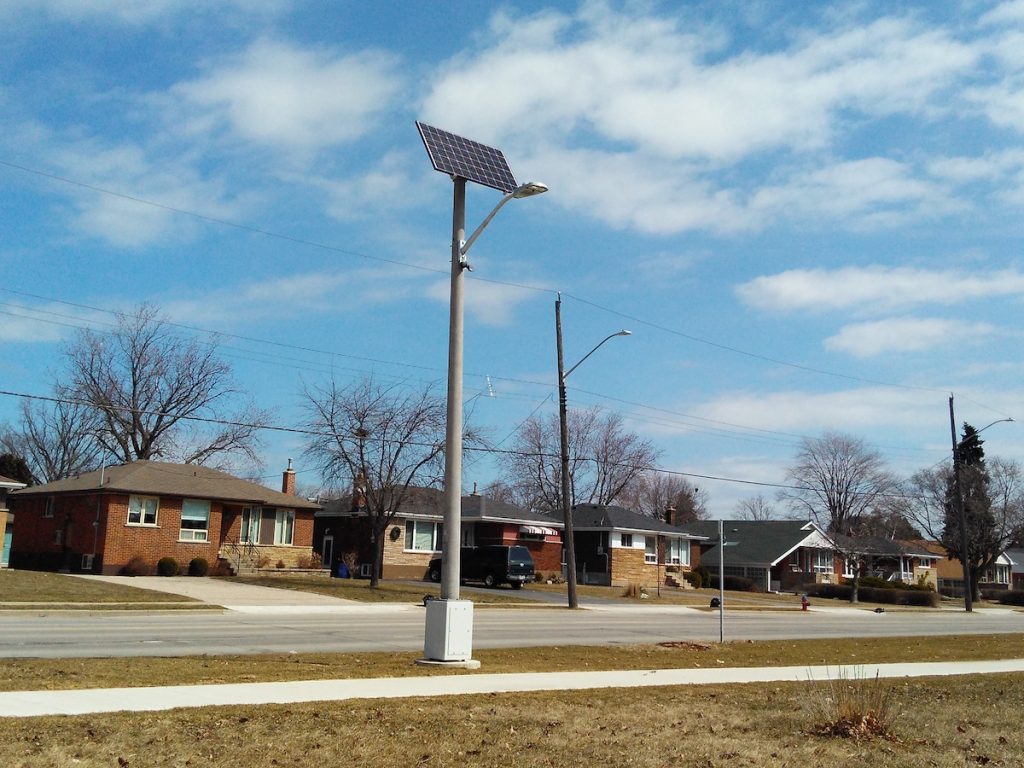In an increasingly connected world, access to reliable lighting is paramount for economic development and improving quality of life. Rural and remote areas often face the challenge of poor or non-existent grid connectivity. Off-grid light poles, especially those powered by renewable energy, offer a versatile and sustainable solution. In this article, we delve into how off-grid light poles are not just cutting costs but also significantly improving lives in rural and remote areas. These innovative light poles serve as beacons of progress and sustainability, paving the way for brighter communities.
Energy Independence and Cost Reduction
One of the most significant advantages of off-grid light poles is energy independence. For remote areas, connecting to a central grid can be prohibitively expensive and logistically challenging. Off-grid light poles, especially those that harness solar or wind energy, eliminate the need for grid connectivity. There is no monthly electricity bill and maintenance costs are usually low. Additionally, with the prices of solar panels dropping, the initial installation costs have become more affordable.
Moreover, energy independence through off-grid light poles offers resilience against power outages and fluctuations in energy prices. In times of natural disasters or grid failures, these light poles remain functional, providing crucial illumination when it’s needed most. Furthermore, not being tied to the traditional energy market, communities do not have to worry about the increasing costs of fossil fuels. This kind of long-term financial stability is especially beneficial for economically constrained communities, allowing them to allocate resources to other vital areas of development.
Boosting Local Economy and Employment
The availability of reliable lighting can have a domino effect on the local economy. Small businesses and markets can remain open for extended hours, thereby increasing income. It also leads to the creation of new business opportunities such as night-time markets or community events. Furthermore, the installation and maintenance of these light poles can also provide job opportunities to local residents.
Additionally, the presence of well-lit public spaces can attract tourists and visitors to the area, which can be particularly beneficial for communities with cultural heritage sites or natural beauty. Tourism can foster the development of local hospitality and retail sectors, and provide an impetus for the preservation of cultural and environmental assets. This, in turn, creates a virtuous cycle, where economic development leads to an improved quality of life, which makes the area even more attractive to visitors and investors.
Enhancing Safety and Productivity
Safety is a prime concern in areas without proper lighting. Off-grid light poles contribute to the safety of communities by illuminating streets and public spaces, which reduces the likelihood of accidents and crime. Additionally, reliable lighting means that people can be productive for longer. Children can study after sunset, and adults can engage in income-generating activities, which collectively contributes to the community’s progress.
Furthermore, the psychological aspect of having well-lit areas should not be underestimated. The availability of light during the night creates a sense of security and well-being among residents. People are more likely to participate in community activities and social gatherings, which are essential for mental health and social cohesion. The reduction in stress and anxiety levels, often associated with poorly lit or dark areas, can have long-term benefits for the overall health and productivity of the community. This, in turn, can lead to reduced healthcare costs and a more vibrant and engaged population.
Encouraging Education and Community Building
Education is often one of the casualties in areas without reliable electricity. Off-grid light poles ensure that schools and community centers have the necessary lighting to function after daylight hours. This is vital for adult education programs, which often need to be held in the evening. Additionally, illuminated community spaces mean that people can gather for social and cultural events, fostering community building.
Another aspect to consider is the role of technology in education. With off-grid light poles facilitating extended hours of operation for educational institutions, there’s an opportunity to integrate technology into the learning process. The use of computers, projectors, and other educational tools becomes feasible, providing students with access to a wealth of information and learning resources that would otherwise be inaccessible. This technological integration not only enhances the quality of education but also prepares the younger generation for a world that is increasingly reliant on digital skills.
Environmental Benefits Translate to Economic Gains
Off-grid light poles, particularly solar-powered ones, have clear environmental benefits. By reducing reliance on fossil fuels, they contribute to a reduction in carbon emissions. This is not just good for the planet but also for the economy. As the world moves towards carbon trading and taxing, being environmentally responsible can have direct economic benefits.
Additionally, by adopting renewable energy sources for lighting, communities are actively participating in the global effort to combat climate change. This proactive approach can make them eligible for various environmental grants and aid programs aimed at supporting green initiatives. Moreover, clean and sustainable living conditions can improve the overall health of the community members, reducing the strain on healthcare systems. This can further save costs in the long term, and ensure a healthier and more sustainable lifestyle for current and future generations.
Government Incentives and Funding
Recognizing the benefits of off-grid light poles, many governments offer incentives and grants for their installation. This further reduces the costs associated with switching to sustainable off-grid lighting solutions.
In Canada, various federal and provincial programs are designed to support and encourage the adoption of renewable energy solutions, including off-grid light poles. For example, the Clean Energy for Rural and Remote Communities (CERRC) program is an initiative that seeks to reduce the reliance on diesel fuel in rural and remote areas by supporting the transition to renewable energy and energy efficiency. Similarly, provinces like British Columbia and Ontario offer rebates and incentives for the installation of solar-powered systems. By availing of these programs, communities in Canada can not only reduce their carbon footprint but also substantially cut down on costs associated with traditional energy sources. This, in turn, makes the switch to off-grid light poles financially attractive and environmentally responsible.
Conclusion: A Brighter Future
Off-grid light poles are proving to be a boon for rural and remote areas across the globe. Their role in cutting costs is a massive benefit, but it is in their capacity to improve lives that their true value lies. Through boosting local economies, improving safety, enabling education, and protecting the environment, they are lighting the way to a brighter and more sustainable future for communities that need it most. Moreover, with government support and incentives, such as those available in Canada, the transition to renewable energy becomes even more feasible and rewarding.
If you are inspired by the possibilities that off-grid light poles present and are considering making the transition in your community or property, Daisy Energy is here to assist. Daisy Energy is a leading provider of energy-efficient lighting solutions, including off-grid light poles. Their expertise and dedication to sustainable practices make them an ideal partner in your journey towards a greener and more prosperous future. Get in touch with Daisy Energy to explore the various options and benefits that off-grid light poles can bring to your community. Let’s work together in lighting the path to sustainability and progress.




































